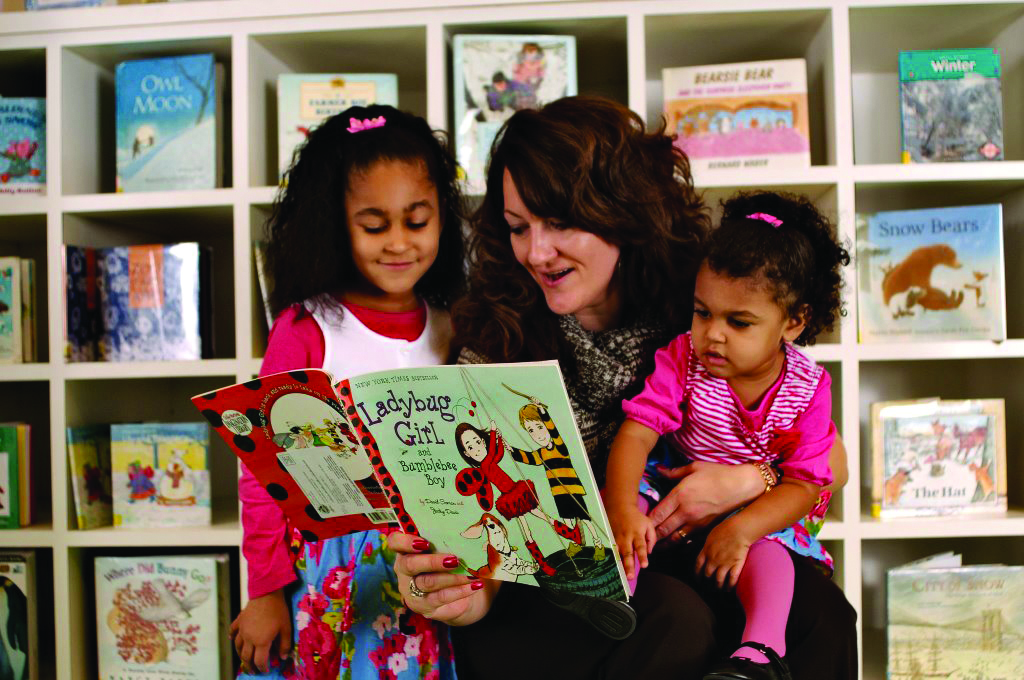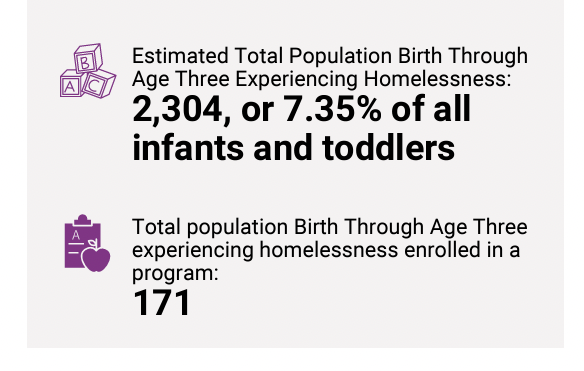On January 20, 2015, Charles Allen, Ward 6 Member of the D.C. Council, introduced a new bill, “Books from Birth,” which would provide children a new storybook once a month in an effort to raise early childhood literacy rates across the city.
Books from Birth proposes that children enrolled in the program would receive books through the mail. This poses a problem for children experiencing homelessness because they have no mailing address and no means to receive those books.
“[Homeless children are] a community that needs this program more than anyone else,” said Laura Marks, Allen’s chief of staff. “We are absolutely going to be talking to advocates in the community and D.C. [service] agencies.”
The bill was inspired by a similar, statewide program in Tennessee, the Governor’s Books from Birth Foundation. The foundation partners with singer and actress Dolly Parton’s Imagination Library to make books available to every child in the state.
Councilman Allen was visiting relatives in Tennessee when he saw how his niece reacted when she received a book through the program. That experience inspired Allen to bring the program to Washington.
“The idea of bringing books directly into children’s hands is really powerful,” Marks said. “It is an evidence-based way of increasing early literacy.”
Allen’s measure does not contain an income threshold for eligibility. The bill will include children from a wide variety of backgrounds, including those experiencing homelessness. Marks told Street Sense that Books from Birth will pair with D.C. shelters and service providers to make sure donated books get to children in the District who are using homeless services.
Advocates for Books from Birth will also work with the DC chapter of the American Academy of Pediatrics (AAP), which will help “advise on ways pediatricians can be involved with enrolling or updating addresses during child wellness visits,” Marks said.
The program in Tennessee has a similar partnership with the Tennessee chapter of the American Academy of Pediatrics. DC AAP is not yet certain which methods it will use to ensure homeless children don’t get lost in the system.
“They’re the most vulnerable” Dr. Lanre Falusi, President of the DC AAP chapter, said. “I think we’re still in the discussion phase about how to make that happen. But we’re in close communications with [Councilman Allen’s office] and we’ll see how things roll out.”
Falusi also sees potential in Reach Out and Read, a national non-profit that provides books to pediatricians’ offices.
If the bill passes, Allen’s office also intends to partner with Unity Healthcare, which provides free clinics for the homeless or families in transitional housing. Marks noted that donating to service providers such as Unity is a way to get books to homeless children.
DC Public Library has also been involved in the preliminary discussion. Its Sing, Talk, Read program reaches out to communities with literacy problems, and could get them enrolled in the Books from Birth program.
“If the bill passes, the library would determine what resources would be needed to acquire and distribute books as part of our budget planning process” said George Williams, Media Relations Manager for the D.C Public Library.
Participants in the Books from Birth program would not be required to sign up for a library card. However, Marks expects that it will encourage families to do so.
“We don’t expect these books will replace the experience of going to the library. We do expect these books will grow the demand for children spending more time at the library” Marks said.
In Tennessee, the “Welcome Baby Project,” provides the main way for parents to sign their children up for Governor’s Books from Birth.
“Every family gets a letter from the Governor and the First Lady welcoming [their] child and providing information on healthcare; it is at that time that the family will get the packet to sign up for the program,” Theresa Carl, president of Governor’s Books from Birth, said.
DC residents should expect this to be one way to sign their children up for “Books from Birth,” by filling out an extra form after their baby is born, Marks said.
But books alone will not be enough to combat The District’s literacy problem, according to Terry Algire, executive director for the Washington Literary Center.
“Anything that puts books in the home is phenomenal,” Algire said. “But we also need to make sure there is a mother, father, aunt, uncle, someone there who can read that book to the child.”
Roughly 36 percent of the local population is considered “minimally literate” and 90,000 adults in the District read below a fifth grade level, according to a report by the Washington Literacy Center.
By the age of 3, children from low-income households have heard, on average, 30 million fewer words than their wealthier classmates, a phenomenon educational researchers, Betty Hart and Todd R. Risley call the ‘word gap.’
Ready to Read, a program run by DC’s Literacy Lab, works to “tackle the challenge of [homeless children’s] low exposure to written and spoken word, and the lack of books and texts in the home,” Ashley Johnson, Co-executive director of Literacy Lab said.
At their two sites, DC General family shelter and New Beginnings youth development center, Ready to Read pairs individual children with volunteers from the Junior League of Washington to read to them once a week to help bridge the ‘word gap’ among D.C’s homeless children.
One-on-one attention is crucial for children’s early learning, which is difficult for children to get if their home situation is unstable.
“Parents in transition housing are really stressed, so there is not a lot of time to devote to early learning,” Johnson said.
Homeless children are also less likely to be enrolled in early childhood education. Difficulties with transportation make enrollment and attendance difficult to manage, according to Johnson.
So far, Councilman Allen’s office has heard nothing but support for Books from Birth. The bill was co-introduced unanimously by the other twelve councilmembers.
“We assume [Grosso] will set a hearing date soon, but it takes a few days for a newly introduced bill to move through the Council’s internal processes before it officially reaches its assigned committee,“ Marks said.
There will be at least two weeks’ notice before the hearing, to assure stakeholders and advocates that they will have time to sign up to testify at the event.
“People often say that ‘this program serves the underserved’” Carl said of Tennessee’s program. “But it’s for any child. There is a social integration factor around the commonality of the same book.”








